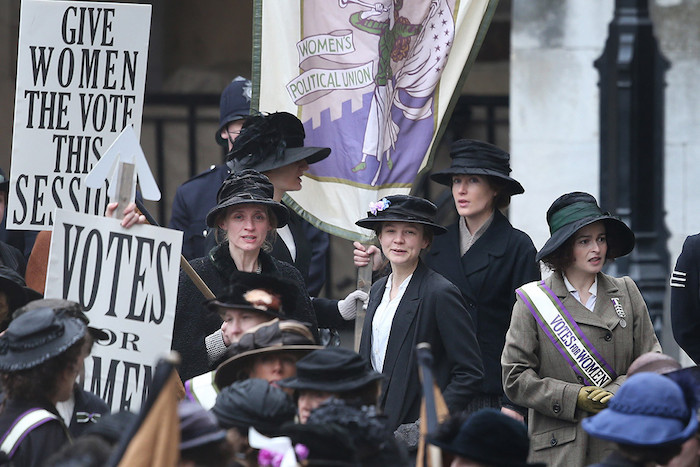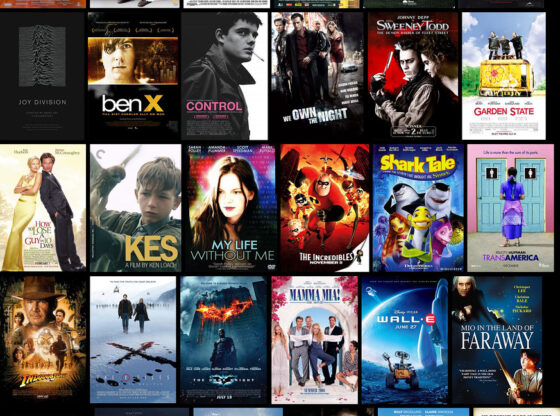Set in early 20th century Britain, “Suffragette” is a dramatized look at the foot soldiers of the women’s suffrage movement. After decades of peacefully demanding the right to vote, the movement escalated to civil unrest in England, and this film is a relevant reminder of the hardships women endured to earn suffrage.
The film stars Carey Mulligan (“The Great Gatsby”) as Maud, a working class woman who is introduced to the suffrage movement by women in her community. She joins the ranks of Edith (Helena Bonham-Carter, “Cinderella”), an outspoken and educated physician and Violet (Anne-Marie Duff, “Before I Go to Sleep”), a fellow laundress, both determined women fighting hard for the cause. Meryl Streep (“Into the Woods”) also makes a brief appearance as Emmeline Pankhurst, the leader of the women’s suffrage movement in the United Kingdom.
Due to her increasing involvement in the movement, Maud loses many of the most important things in her life. After following a number of the escalating defiant and violent acts the suffragettes carry out, the movie ends on a hopeful note, shifting from showing a march in the film to the real, historical footage of the event.
Controversy has blossomed around the movie in recent months, partly because it doesn’t address how this women’s movement blatantly refused to allow black women to join. To top it off, there was a photo shoot of cast members wearing shirts with the bold quote from Pankhurst’s speech, “I’d rather be a rebel than a slave.” Taken out of its context, the quote, especially on privileged white women, was rather insensitive toward the actual slavery that many black people had endured (usually without the option of being a rebel).
Jodie Kreider, PhD, a DU history professor, chimed in on the historical aspects of the movie, pointing out that most suffragettes were not working class, as Maud was, and the movement wasn’t very sympathetic to working class women’s problems.
“She’s neat, she’s tidy, her accent’s not very thick—that makes her acceptable in the ranks of the suffragettes,” said Dr. Kreider. “I think that’s romanticizing that. Carey Mulligan’s ability to pass as a kind of middle class woman should be used as a reminder that that’s not typical.”
However, “Suffragette” still manages to get many things right. It doesn’t shy away from the harsh abuse, both verbal and physical, that women, especially those involved in the movement, regularly faced from the police, employers, politicians, husbands and other men in their communities at this time.
“It’s a good reminder of what’s come before and why feminism still matters, and that these issues still have to be publicized,” said Kreider. “And even if that demonstration is kind of poorly thought out in terms of racial representation, it’s good to remember that these things still need to get attention in the press, that we still have an earnings differential between women and men.”
In this role, Mulligan continues to do what she does best—a nuanced and emotional performance that feels utterly authentic. The well-crafted honest and historical style of the film matches Mulligan’s performance, giving true heart to the movie. Bonham-Carter, Streep and Duff all shine in supporting roles, representing the range of women involved in the movement, from the foot soldiers to its leaders.
Despite its flaws, “Suffragette” is still an important movie to see, and one that serves to remind us of the important experiences of women in the past. This conversation is still relevant and necessary, and the film is well worth heading to a theater to see.











